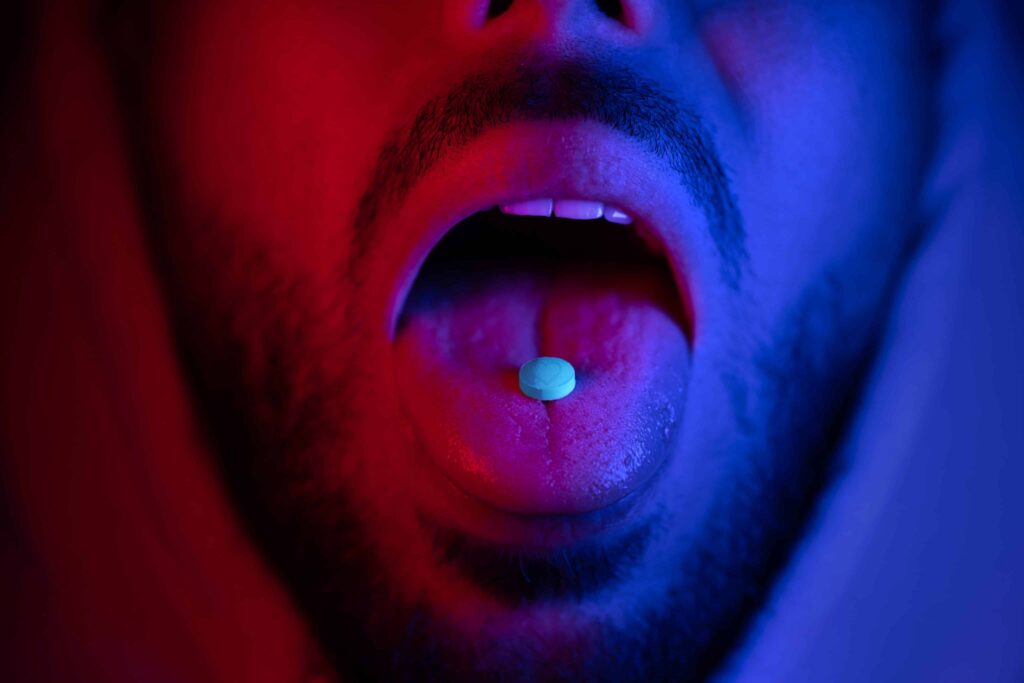
The Utah Senate and House unanimously approved a bill that would establish a pilot program for hospitals to administer psilocybin and MDMA as alternative treatment, sending it to the governor.
A bill introduced by Senate Majority Whip Kirk Cullimore (R) and House Speaker Pro Tempore James Dunnigan (R), earlier this month, Senate Bill 266, would create a pilot program to explore psilocybin and MDMA as alternative treatments in hospitals in Utah.
The bill was sent to the desk of Utah Gov. Spencer Cox (R) this week where it awaits his signature. Since hospitals and universities generally default to federal regulations, it’s unclear how the bill would pan out as psilocybin and MDMA remain schedule I drugs under the Controlled Substances Act (CSA).
“The bill is proposing, really, an alternate pathway, ” Rep. Raymond Ward (R) said before the House vote this month. “That’s why I say it’s a philosophical question. Do you think that these medicines really only should always just go through this one pathway, the FDA first and then be allowed to be used? Or do you think there should be any other alternate pathway whereby a patient might be given these medications in a controlled setting from some of our best physicians, but where we really do not yet have all of the data that we normally would have before we gave them to patients?”
Per the bill, psilocybin and MDMA would be administered by a privately owned, non-profit health care system with at least 15 licensed hospitals, or as part of medical programs operated by higher level institutions of learning.
“A healthcare system may develop a behavioral health treatment program that includes a treatment” with psilocybin and MDMA that it “determines is supported by a broad collection of scientific and medical research,” the bill reads.
The bill would amend Laws of Utah 2023, Chapter 303, and enact 58-37-3.5, Utah Code Annotated 1953. Utah voters approved medical cannabis in 2018, and the state is well on its way towards amending laws surrounding psychedelics for therapeutic purposes.
Any hospital that participates in the psychedelics therapy pilot program would need to submit a report to the Utah Legislature by July 1, 2026, detailing which drugs are being utilized, the outcomes of patients in treating their conditions, and any potential side effects.
If passed, the bill would take effect on May 1, 2024 and sunset after three years.
Two years ago, Gov. Spencer Cox (R) signed into law a bill that created a task force to study and make recommendations on the therapeutic potential of psychedelic drugs and possible regulations for their lawful use.
Rep. Brady Brammer (R), who sponsored the previously enacted psychedelics task force legislation, House Bill 167, said psychedelics represent “one of the few areas of research where we see that there are curative possibilities for mental health, particularly related to PTSD and treatment-resistant depression.”
“This is another tool in our toolbox,” he said. “We’ve done the task force. They’ve come back with their reports. And now we have this clinical trial of sorts that allows for some of the patients to get it under significant observation with the appropriate guardrails.”
Mormons on Mushrooms? A Growing Interest in Psilocybin in Utah
Meanwhile, last November in Provo—a city with nearly 90% of residents who are Mormon, or Latter-Day Saints—a mushroom treatment center, called Singularism, opened its doors.
Singularism touted freedom of religion in order to use psilocybin mushrooms but immediately attracted the wrath of the City of Provo, whose officials appeared to state that the center wouldn’t last long.
A longshot bill that would legalize psilocybin mushrooms in Utah was introduced last February. Senate Minority Leader Luz Escamilla, (D-Salt Lake City) unveiled Senate Bill 200 on Feb. 9, a bill that would legalize psilocybin mushrooms for medical use in Utah.
Deseret News reports that SB 200 would set up a program that mirrors the program behind Utah’s medical cannabis market. Utah’s compromise bill, the Utah Medical Cannabis Act, which was passed in 2018 allows patients with a healthcare provider’s verification, to purchase medical cannabis.
The bill would allow Utahns ages 21 and older to receive a psilocybin-assisted treatment directly from a psilocybin therapy provider. Qualifying conditions would include depression or anxiety if the patient has tried at least one other treatment route, PTSD, and people who are receiving hospice care.
Currently in Utah, possession of psilocybin can result in a prison sentence of up to 10 years or a $5,000 in fine. The state has come a long way in terms of cannabis and psychedelic reform, with a Mormon supermajority that has dominated its legislature for decades.
Read full article on High Times

